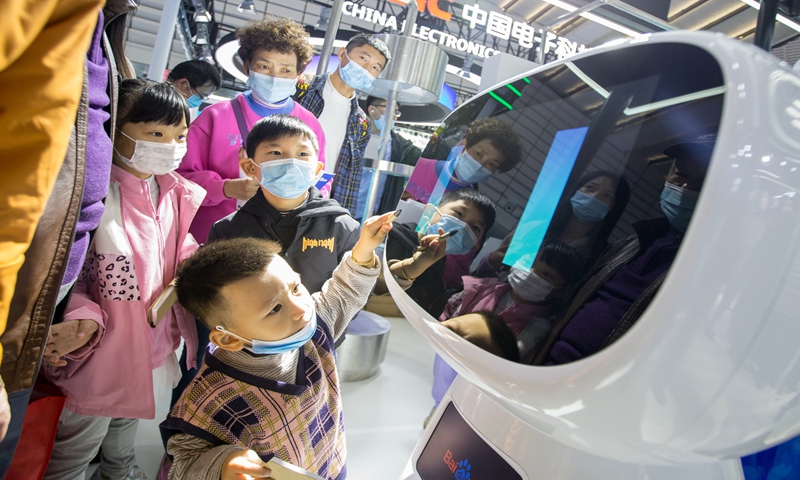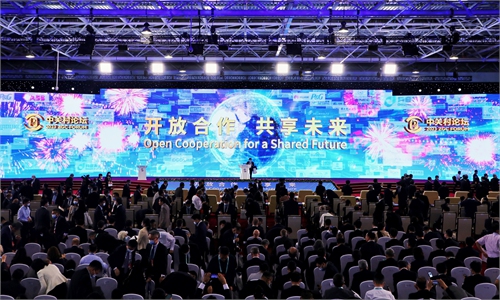
Visitors talk to Baidu's AI robot Xiaodu at World Internet Conference in Yiwu, East China's Zhejiang Province, November 22, 2020. Photo: VCG
Chinese authorities have issued a plan to explore the use of artificial intelligence (AI), virtual reality (VR) and other technologies to improve experimental teaching, among a series of measures aimed at strengthening scientific education for primary and secondary school students.
The Ministry of Education (MOE) and other 17 central government departments jointly issued a document on Monday addressing comprehensively improving the scientific literacy of primary and secondary school students.
The document suggests providing facilities, equipment, books and software to assist in the construction of science education settings for areas and schools with less developed infrastructure, in addition to exploring the use of AI, VR and other technologies to help enhance experimental teaching and make up for the shortage of quality education and teaching resources.
Schools should fully launch science courses in accordance with prescribed curriculum plans, revise and improve the curriculum standards and teaching materials.
In addition, "large classrooms" should be made good use of, such as research institutes, science and technology museums, youth palaces, cultural centers, libraries and auditoriums which are able to be coordinated and mobilized to open their venues to students.
Science-related education resources are widely distributed in various departments, fields and industries. However, problems still exist, including lack of precise connection between supply and demand, an MOE official told reporters on Monday.
"On the basis of the existing science education resources and working mechanism, we will strive to establish social classroom clusters for better science education," the official said.
Moreover, it is imperative to make sure all students, including those from poorer regions, are included in the project and enjoy better resources too, the official noted.
China has stepped up efforts to accelerate domestic science and technology development. The country's expenditure on research and development totaled 3.087 trillion yuan in 2022, surpassing the 3-trillion-yuan threshold for the first time, according to a report conducted by Dalian University of Technology.
Global Times

